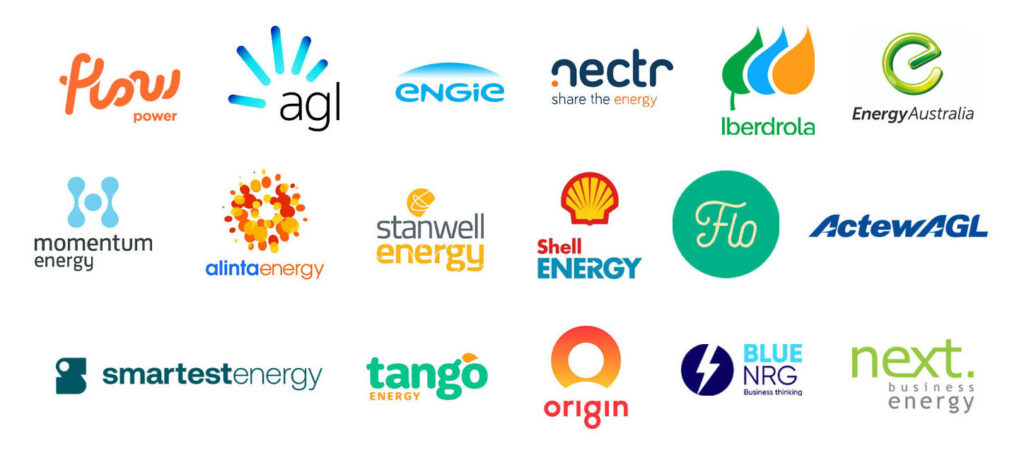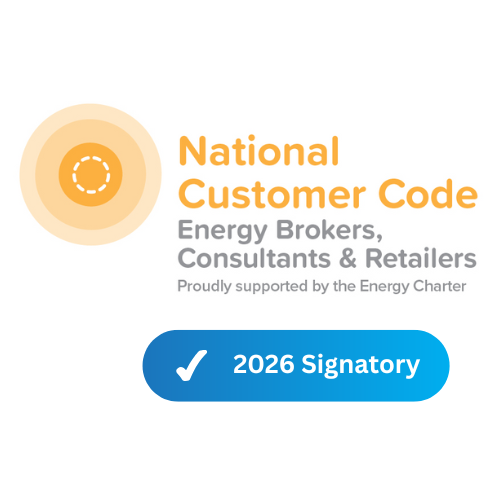25 September 2024
Navigating Commercial & Industrial Energy Contracts: Choosing a contract term for your business
Blog
When entering a commercial & industrial (C&I) retail electricity or natural gas contract, aside from selecting a retailer, an important decision for a business is determining the length of the contract. Unlike SME and Residential Retail Energy Contracts, C&I agreements do not permit customers to terminate them without substantial termination fees. Moreover, C&I customers have greater choice relating to contract terms with retailers typically offering terms of up to 60 months or longer for PPA-type arrangements.
Deciding on the energy contract term is more than a matter of simple preference— it is a form of risk management. Contract length directly impacts energy supply arrangements’ flexibility, cost certainty, and potential financial outcomes. Whether to opt for a short-term, medium-term, or long-term contract depends on several factors, and each choice has its advantages and drawbacks. This article will help you understand the key considerations in choosing a contract term, the risks involved in short-term versus long-term commitments, and how making an informed choice can positively affect your business’s bottom line.
Factors to Consider When Choosing Energy Contract Term Length
The decision on contract length is not one-size-fits-all. It depends on factors such as:
- Lease Terms: Businesses with shorter or uncertain lease agreements may prefer short-term contracts, while those with more stable or long-term leases might benefit from longer energy contracts.
- Business Plans: Uncertainty about the future of a business, especially regarding its viability or plans to relocate, can influence the contract decision. A business with a short planning horizon might favour flexibility, whereas long-term contracts can provide stability for businesses with more secure futures.
- Electricity Price Predictions: Forecasts on electricity prices play a significant role. If prices are expected to rise, locking in a longer-term contract could help hedge against future increases. However, if a price drop is anticipated, a shorter-term contract might offer the flexibility to take advantage of lower rates in the future.
- Budget Certainty: Businesses that prioritize predictable expenses may prefer longer-term contracts, which typically offer greater budgetary stability. On the other hand, companies that can manage fluctuations in energy costs might prioritize flexibility over certainty.
- Convenience: Some businesses prefer to avoid the hassle of frequent procurement processes, which can make longer-term contracts appealing, even if they come with other risks.
The Risk Management Perspective: Balancing Certainty and Flexibility
At its core, deciding on a contract term is about managing risk. The length of a contract can affect your business in several ways, depending on market conditions. Let’s look at the pros and cons of short-term, medium-term, and long-term contracts to understand the associated risks and benefits better.
Short-Term Contracts (12–24 months)
Pros:
- Flexibility: A short-term contract allows businesses to adapt quickly to changing market conditions. If electricity prices drop, for example, they can renegotiate and lock in lower rates more quickly.
- Potential for Savings: Businesses that sign short-term contracts have the opportunity to lock in lower rates during renewal periods if market conditions are favourable.
Cons:
- Budget Uncertainty: Short-term contracts come with a level of unpredictability, as the rates upon renewal may be higher if market prices rise significantly.
- Risk of Higher Rates: A rapid rise in electricity prices could lead to a scenario where businesses face much higher rates at the end of a short-term contract, compared to those who are locked into longer terms.
Medium-Term Contracts (25–48 months)
Pros:
- Budget Certainty: Medium-term contracts offer more stability than short-term contracts while still allowing some degree of flexibility.
- Moderate Savings Potential: With a medium-term contract, businesses can still take advantage of downward market trends but have greater protection against price volatility than with a short-term contract.
Cons:
- Reduced Flexibility: While a medium-term contract offers more budget certainty, it limits the ability to adapt to market changes as quickly as a short-term contract would.
- Risk of Overpaying: If electricity prices fall during the contract period, businesses may find themselves locked into higher rates than the market would offer under a shorter contract.
Long-Term Contracts (49–60 months)
Pros:
- Budget Stability: Long-term contracts provide the highest level of certainty and predictability in budgeting. Businesses know exactly what they will pay for energy over an extended period, which can be invaluable for financial planning.
- Protection Against Price Increases: A long-term contract shields businesses from rising electricity rates, potentially saving them money if the market experiences significant rate hikes.
- Opportunity for “Blend and Extend”: Some retailers offer a “blend and extend” option, allowing businesses to blend their current higher rates with lower future rates by extending their contracts and effectively reducing costs over time.
Cons:
- Less Flexibility: Long-term contracts offer the least flexibility to adapt to market fluctuations. If electricity prices fall during the contract term, businesses will not benefit from lower rates.
- Risk of Overpaying: The major risk of a long-term contract is being locked into higher-than-market rates if prices drop significantly.
Making an Informed Decision
Ultimately, the choice between a short-term, medium-term, or long-term contract depends on your business’s specific needs and risk tolerance. Here are a few tips to guide your decision:
- Assess Your Risk Tolerance: If budgetary certainty is a top priority, and you are willing to forgo flexibility, a long-term contract may be the best option. However, if you prefer to remain adaptable to market changes, a short-term contract may suit you better.
- Stay Informed on Market Trends: Keeping an eye on electricity price forecasts can help you make more informed decisions about contract length.
- Consider a “Blend and Extend” Strategy: If your business has already committed to a long-term contract but market rates have dropped, discussing a “blend and extend” option with your energy retailer could allow you to lower your costs while maintaining budgetary stability.
Terminating a Commercial & Industrial Energy Contract:
Early termination penalties for C&I Energy Contracts can be substantial. Typically, the energy retailer will seek to recover the residual value left in the remaining terms of the contract. To calculate the early termination penalty, energy retailers will typically consider the following:
- The contracted rates compared to current wholesale market rates
- The contracted volume of electricity or natural gas
- The remaining term of the contract
- Other sites’ C&I accounts that your business may have with the retailer
This differs from SME and Residential Retail Energy Agreements, which usually have low or no early termination costs, should the customer wish to switch retailers or renegotiate.
Conclusion: Contract Terms as a Strategic Decision
Choosing the right Commercial & Industrial Energy Supply contract term length is an important decision. Whether you opt for short-term flexibility, medium-term balance, or long-term stability, the key is to understand your business’s needs and the market environment. By carefully weighing the pros and cons of each energy contract term length and considering market trends, you can make an informed decision that helps manage risk and optimize costs.
We source, analyse, compare and rank commercial, industrial and multisite energy quotes. Obligation Free.
Chat with one of our experienced consultants today and get the insights your business needs to help manage the risks associated with volatile electricity and natural gas markets. Our energy procurement service is obligation-free and provides a time-saving way of securing lower energy rates from our panel of energy retailers.

Get advice from our Energy Management Consultants

James Iliffe
Managing Director
Get in Touch
Feel free to call or e-mail us. Or just fill in the form below and we’ll contact you for an obligation-free discussion.
Are you ready to save on business energy costs?
Get Started
Leading Edge Energy is proud to be a signatory of the National Customer Code for Energy Brokers, Consultants and Retailers.